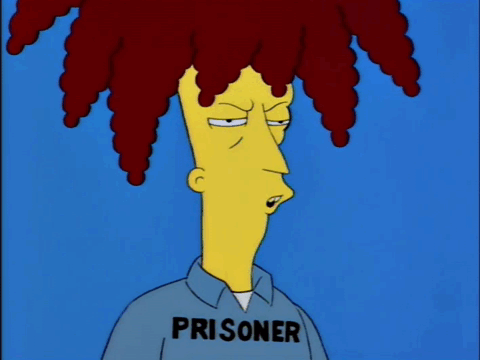Today’s readings are… not super related. The first reading and Gospel are picking up stories that we left off Saturday and yesterday, respectively.
Eh, it happens. You’ll get through the whole Bible eventually, if you just stick with it!
Reading 1
Acts 5:17-26
The high priest rose up and all his companions, that is, the party of the Sadducees, and, filled with jealousy, laid hands upon the Apostles and put them in the public jail.
But during the night, the angel of the Lord opened the doors of the prison, led them out, and said, "Go and take your place in the temple area, and tell the people everything about this life." When they heard this, they went to the temple early in the morning and taught.
When the high priest and his companions arrived, they convened the Sanhedrin, the full senate of the children of Israel, and sent to the jail to have them brought in. But the court officers who went did not find them in the prison, so they came back and reported, "We found the jail securely locked and the guards stationed outside the doors, but when we opened them, we found no one inside."
When the captain of the temple guard and the chief priests heard this report, they were at a loss about them, as to what this would come to. Then someone came in and reported to them, "The men whom you put in prison are in the temple area and are teaching the people." Then the captain and the court officers went and brought them, but without force, because they were afraid of being stoned by the people.
Remember last Saturday, when the Sanhedrin told the Apostles to stop preaching about Jesus? Well, they didn’t stop. So, the Sanhedrin threw them in jail!
In response, God sent an angel to break them out. They immediately went back to the temple to preach.
Which the high priests would know about, if they’d gone to the temple in the morning. Instead, they held their little private meeting, sent some underling to the jail to fetch the prisoners, and only then did they find out the Apostles escaped during the night.
If they’d been doing their jobs, teaching in the temple, they could’ve seen all of this happen. Instead, they were focused on local politics.
Responsorial Psalm
Ps 34:2-3, 4-5, 6-7, 8-9
R. The Lord hears the cry of the poor.
I will bless the LORD at all times;
his praise shall be ever in my mouth.
Let my soul glory in the LORD;
the lowly will hear me and be glad.
R. The Lord hears the cry of the poor.
Glorify the LORD with me,
let us together extol his name.
I sought the LORD, and he answered me
and delivered me from all my fears.
R. The Lord hears the cry of the poor.
Look to him that you may be radiant with joy,
and your faces may not blush with shame.
When the poor one called out, the LORD heard,
and from all his distress he saved him.
R. The Lord hears the cry of the poor.
The angel of the LORD encamps
around those who fear him, and delivers them.
Taste and see how good the LORD is;
blessed the man who takes refuge in him.
R. The Lord hears the cry of the poor.
The Psalmist is doing the opposite of what the Sanhedrin did. God heard his prayers and delivered him from his fears.
So, he goes out to invite everyone to sing God’s praises with him. He’s especially excited to share his joy with the lowly, who may have lost hope.
Alleluia
Jn 3:16
R. Alleluia, alleluia.
God so loved the world that he gave his only-begotten Son,
so that everyone who believes in him might have eternal life.
R. Alleluia, alleluia.
“Gave” can mean two different things here. First, in the way we typically think of it, as bestowing a present. The other, however, is in offering up, as in a sacrifice.
Jesus was both.
Gospel
Jn 3:16-21
God so loved the world that he gave his only-begotten Son, so that everyone who believes in him might not perish but might have eternal life. For God did not send his Son into the world to condemn the world, but that the world might be saved through him. Whoever believes in him will not be condemned, but whoever does not believe has already been condemned, because he has not believed in the name of the only-begotten Son of God. And this is the verdict, that the light came into the world, but people preferred darkness to light, because their works were evil. For everyone who does wicked things hates the light and does not come toward the light, so that his works might not be exposed. But whoever lives the truth comes to the light, so that his works may be clearly seen as done in God.
This continues the last couple days’ story. What’s strange is that it starts as a dialogue between Jesus and Nicodemus, which transitions to a monologue from Jesus, and then finally, John inserts this commentary. John, as the narrator, knows things the people in the story don’t. He’s writing from decades later, as the theology of Christianity has developed some.
The Evangelist knows that Jesus died for our sins and rose again. He knows the ending of the story, even as he’s writing about the drama between Jesus and the Pharisees. So it’s good that he reminds us what all of this is for. It’s not just two rabbis having a debate. It’s a powerful Jewish leader meeting the Messiah himself and having a conversion.






